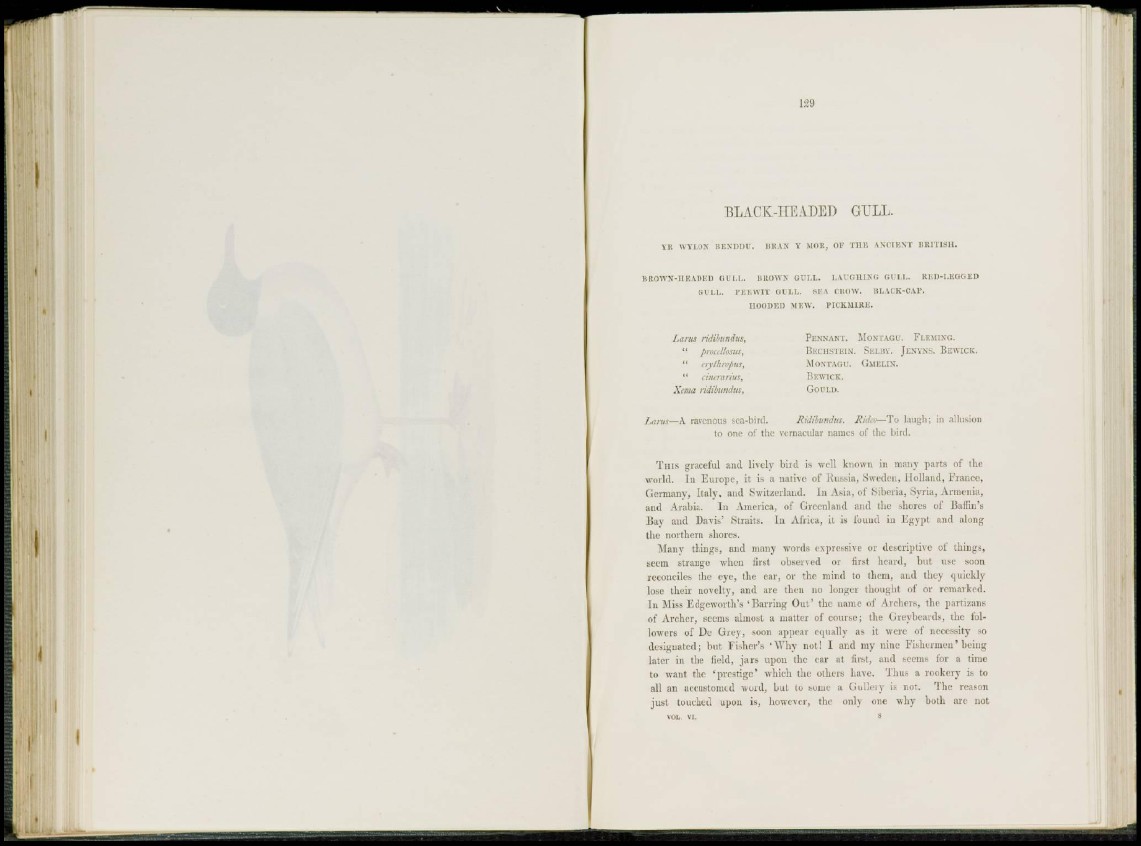
" B L A C K - H E A D E D G U L L.
YIl WYI.UN HENDDU. BEAN Y MOB, OF THE ANCIENT BRITISH.
BROWN-HEADED GULL. BROWN GULL. LAUGHING GULL. RED-LEGGED
GULL. PEEWIT GULL. SEA CHOW. It LACK-CAP.
HOODED MEW. F T C K M 1 R E.
Larus ridibundus,
" proallosus,
" trytkpopHt,
'' chit remits,
Xema ridibundus,
PENNANT. MONTAGU. FLEMING.
BECHSTEIN. SELBY. JENYNS. BEWICK.
MONTAGU. GMELIN.
BEWICK.
GOULD.
Larus—A ravenous sea-bird. Ridibundus. Rideo—To laugh; in allusion
to one of the vernacular names of the bird.
T h i s graceful and lively bird is well known in many parts of the
world, lu Europe, it is a native of Russia, Sweden, Holland, France,
Germany, Italy, and Switzerland. In Asia, of Siberia, Syria, Armenia,
and Arabia. In America, of Greenland and the shores of Baffin's
Bay and Davis' Straits. In Africa, it is found in Egypt and along
the northern shores.
Many things, and many words expressive or descriptive of things,
seem strange when first observed or first heard, but use soon
reconciles the eye, the ear, or the mind to them, and they quickly
lose their novelty, and are then no longer thought of or remarked.
I n Miss Edgeworth's 'Barring Out* the name of Archers, the partizans
of Archer, seems almost a matter of course; the Greybeards, the followers
of De Grey, soon appear equally as it were of necessity so
designated; but Fisher's ' W h y not! I and my nine Fishermen'being
later in the field, jars upon the car at first, and seems for a time
to want the 'prestige' which the others have. Thus a rookery is to
all an accustomed word, but (o bumc a Gullery is not. The reason
just touched upon is, however, the only one why both are not
VOL. VI. S